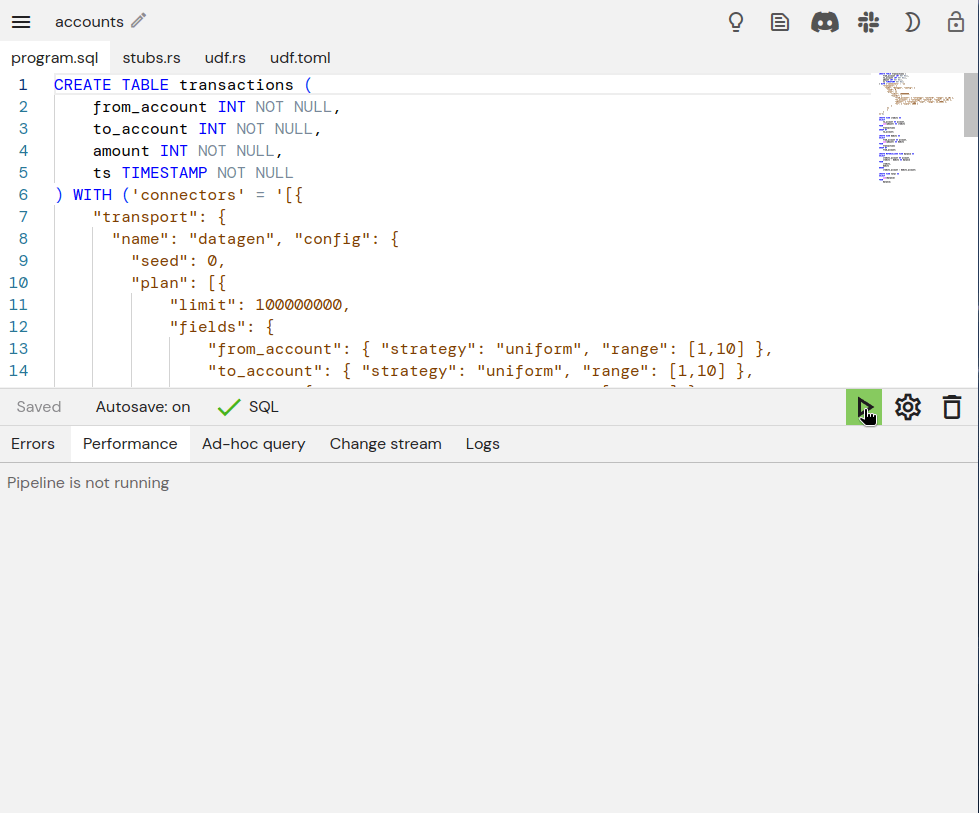Feldera is an incremental computation platform. Users write programs in Feldera SQL. The inputs of these programs look like traditional database tables, and the outputs are traditional database views. But Feldera is not just a database engine. Feldera SQL is in some respects substantially more powerful than standard SQL, enabling new use cases.
There are at least three different personalities that a Feldera computation can assume:
- standard incremental view maintenance, that keeps very complex views continuously fresh, used for online analytics (e.g., batch analytics)
- a powerful graph computation engine, which can evaluate complex mutually recursive queries computing fixed points, used for writing complex interactive applications (e.g., spreadsheets, security)
- a streaming engine, which can compute using finite memory even over infinite streams, used for event processing (e.g., fraud detection) and time-series analytics (e.g., monitoring)
The beauty is that you can also mix-and-match these personalities, by writing applications that combine multiple such facets. And you don't have to learn a new programming language - just use SQL.



